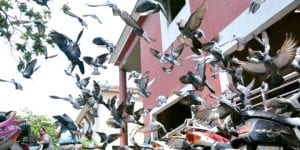
by Pigeon Patrol | Apr 22, 2016 | Bird Deterrent Products, Bird Netting, Pigeon Patrol's Services
 SINGAPORE – Every day for at least a year, pigeons that congregate outside Masjid Haji Muhammad Salleh mosque will get an extra ingredient in their breakfast.
SINGAPORE – Every day for at least a year, pigeons that congregate outside Masjid Haji Muhammad Salleh mosque will get an extra ingredient in their breakfast.
They will be fed a corn-based feed containing a drug called nicarbazin, which will either prevent the female birds from developing eggs or cause them to lay eggs that do not hatch.
This is a new method being tested by the Agri-Food & Veterinary Authority of Singapore (AVA) at a field outside the mosque along Palmer Road near Shenton Way. The trial was started on Oct 13 this year.
This new trial coincides with increasing number of pigeon-related feedback received by the AVA. About 3,400 were received from January to October this year, more than some 2,500 they received in the whole of 2014 and some 2,100 in 2013.
Feedback on all birds have also grown from around 4,400 in 2013 to around 6,100 in the first 10 months of 2015 alone.
The field outside the mosque has an estimated pigeon population of around 400, a number which has doubled since three years ago. So far the AVA has caught 13 feeders.
Mr Mohamed Idris, secretary of the mosque’s management board, said the pigeon problem has always been around but worsened over the last 10 years.The pigeons fly into the mosque compounds, making them a nuisance to staff and people who go to the mosque to pray.
“They leave their droppings on the floor and you walk on it…they congregate at the food preparation area as well,” said Mr Mohamed.
The persistent and growing problem has led the AVA to choose the mosque as the first area to trial the method.
During a demonstration of the method on Thursday (Nov 5), Ms Janet Chia, executive manager of the Operations (Wild Animals) section at AVA, said that it will take about a year to see a drop in the pigeon population there.
Around five mosque volunteers will be in charge of feeding the laced feed to the pigeons. The method could be rolled out to other areas in Singapore if the trial proves successful.
When tested in Italy, the method was found to reduce the pigeon population there by 30 to 40 per cent over four years.
The drug does not harm the birds and is only toxic to cats or dogs if 40kg of the feed is consumed. For it to be toxic to a child, 60kg of the feed will have to be consumed.
The AVA urged the public not to feed birds as it causes them to congregate and increases their population.
Feeding pigeon is illegal and those found to flout the rules face a fine of up to $500.
About Pigeon Patrol:
Pigeon Patrol Products & Services is the leading manufacturer and distributor of bird deterrent (control) products in Canada. Pigeon Patrol products have solved pest bird problems in industrial, commercial, and residential settings since 2000, by using safe and humane bird deterrents with only bird and animal friendly solutions. At Pigeon Patrol, we manufacture and offer a variety of bird deterrents, ranging from Ultra-flex Bird Spikes with UV protection, Bird Netting, 4-S Gel and the best Ultrasonic and audible sound devices on the market today.
Voted Best Canadian wholesaler for Bird Deterrent products four years in a row.
Contact Info: 1- 877– 4– NO-BIRD (www.pigeonpatrol.ca)
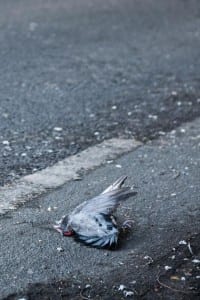
by Pigeon Patrol | Apr 21, 2016 | 4-S Gel Bird repellent, Bird Deterrent Products, Bird Netting
 Culling pigeons is becoming an attractive solution for local authorities but is ineffective in dealing with the root of the problem, according to an ornithologist.
Culling pigeons is becoming an attractive solution for local authorities but is ineffective in dealing with the root of the problem, according to an ornithologist.
“Shooting pigeons is a temporary solution,” Natalino Fenech told the Times of Malta. “The only solution is to introduce contraceptive feed while also ensuring that the dilapidated buildings where pigeons nest are shut.”
The Sliema local council angered some residents last week by carrying out a pigeon cull, which continues.
Mayor Anthony Chircop said the cull was the only solution to the “uncontrollable infestation” and that other methods – including contraceptive feed – had been tried but proved ineffective.
Dr Fenech, however, said the effect of contraceptive feed wore off after a few weeks, so the measure had to be sustained to yield a noticeable result and serve as a long-term solution.
Martha Vella Kane, a Sliema resident and former member of the locality’s animal welfare committee, blasted the council for not working with residents to find a solution and called the cull a “massacre”.
You have to work with those feeding the pigeons, not against them
“You have to work with the people feeding the pigeons, not against them,” she said. “For an animal lover, putting up signs saying not to feed the pigeons has no effect.”
Ms Vella Kane said feeders would be ready to switch to contraceptive feed and added that residents had similarly spent a year neutering cats in the area, which greatly reduced the stray population. “At the same time, you don’t want to eradicate pigeons altogether, just keep the population down,” she said.
“Imagine St Mark’s Square, in Venice without pigeons.”
Sliema is not the only locality facing problems due to an overpopulation of pigeons, which can spread disease and damage street furniture and buildings with their waste.
Birkirkara mayor Joanne Debono Grech said that her council had recently tried an innovative approach using a non-toxic repellent gel, which tricked the birds into thinking buildings were on fire.
However, Ms Debono Grech added, the approach was not effective enough and the council was considering other options, although she had no intention of opting for a cull. According to the mayor, the area around the church had been worst affected and some residents had resorted to their own remedies.
Culls have also been carried out by the government’s animal welfare department in Balluta in St Julian’s and at St Luke’s Hospital in Pietà in recent years.
A spokesman for the Pietà council said further measures were being studied after “daily” complaints by residents but there were no immediate plans.
About Pigeon Patrol:
Pigeon Patrol Products & Services is the leading manufacturer and distributor of bird deterrent (control) products in Canada. Pigeon Patrol products have solved pest bird problems in industrial, commercial, and residential settings since 2000, by using safe and humane bird deterrents with only bird and animal friendly solutions. At Pigeon Patrol, we manufacture and offer a variety of bird deterrents, ranging from Ultra-flex Bird Spikes with UV protection, Bird Netting, 4-S Gel and the best Ultrasonic and audible sound devices on the market today.
Voted Best Canadian wholesaler for Bird Deterrent products four years in a row.
Contact Info: 1- 877– 4– NO-BIRD (www.pigeonpatrol.ca)
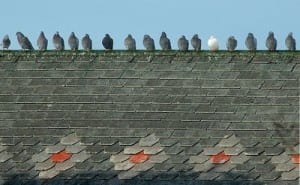
by Pigeon Patrol | Apr 20, 2016 | Bird Netting, Pigeon Patrol's Services, UltraSonic Bird Control
 I AM appalled at the latest invasion of pigeons in Widnes town centre.
I AM appalled at the latest invasion of pigeons in Widnes town centre.
I’ve never seen so many.
There must be hundreds roosting round the shops.
I am very worried about the health risk they pose as they are vermin and carry disease.
These birds are even inside the Greenoaks shopping mall causing a nuisance to shoppers.
This sudden rise in pigeons is very alarming and totally unacceptable.
Why should we have to put up with them as we go about our daily lives?
I’ve seen young families and pensioners trying to get out of their way.
It’s about time we did something to get rid of these invasive birds.
About Pigeon Patrol:
Pigeon Patrol Products & Services is the leading manufacturer and distributor of bird deterrent (control) products in Canada. Pigeon Patrol products have solved pest bird problems in industrial, commercial, and residential settings since 2000, by using safe and humane bird deterrents with only bird and animal friendly solutions. At Pigeon Patrol, we manufacture and offer a variety of bird deterrents, ranging from Ultra-flex Bird Spikes with UV protection, Bird Netting, 4-S Gel and the best Ultrasonic and audible sound devices on the market today.
Voted Best Canadian wholesaler for Bird Deterrent products four years in a row.
Contact Info: 1- 877– 4– NO-BIRD (www.pigeonpatrol.ca)
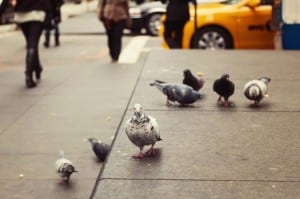
by Pigeon Patrol | Apr 19, 2016 | Bird Netting, Pigeon Patrol's Services, Pigeon Spikes
 THE new experiment to control the pigeon population in Singapore should be conducted with care, to make sure that only the targeted species – pigeons – are affected, and not other bird species and stray animals.
THE new experiment to control the pigeon population in Singapore should be conducted with care, to make sure that only the targeted species – pigeons – are affected, and not other bird species and stray animals.
That was the response from two civil groups we spoke to when we asked them about Agri-Food and Veterinary Authority of Singapore’s (AVA) newest pilot – to control the pigeon population in Singapore by feeding them a a corn-based feed containing a drug, nicarbazin, which either stops the female pigeons from producing eggs or causes them to lay eggs that don’t hatch.
Both civil groups – Society For The Prevention Of Cruelty To Animals (SPCA) and the Nature Society Singapore (NSS) – called the trial a good move, but added that it should be conducted with care.
The trial, which started on Oct 13, is currently being limited to a field outside the Masjid Haji Muhammad Salleh mosque in Palmer Road, near Shenton Way. The number of pigeons outside the mosque has doubled over the last two years – there are now over 400 pigeons. It would take about a year to see a drop in the pigeon population, and if the trial is successful, the method will be tried out in other parts of Singapore.
When tested in Italy, the method was found to reduce the pigeon population in the test area by 30 per cent to 40 per cent over four years.
In the past year alone, there have been 3,400 pigeon-related complaints – 36 per cent more than the 2,500 complaints that AVA has received in 2014. Most of the complaints are about hygiene, environmental issues resulting from their droppings, and concerns over diseases and people feeding them.
A larger picture shows that feedback on all birds have also been on the rise – there were 6,100 bird-related complaints this year. This is a 38.6 per cent increase from the 4,400 bird-related complaints submitted to AVA in 2013.
Ms Corinne Fong, executive director of SPCA, said that SPCA has always advocated sterilisation for stray cats and dogs. “If AVA is embarking on this with birds – controlling the population by sterilising them and not culling them, that would be fantastic,” she said.
She also added that SPCA has had various complaints about the pigeon population in Singapore, but since it doesn’t have the capacity to deal with birds, the complaints are generally referred to NEA. However, she added that those carrying out the trial would have to be careful of other stray animals.
“The contractors for AVA would have to be mindful that there are community cats and dogs, and children for that matter,” she said. “They must be observant of other stray animals – if any – that are going around picking the food.”
The pigeon feed will not harm other animals or humans if consumed accidentally in small doses. However, if consumed in large doses, it can be toxic – it would take 40kg of the feed to see toxic effects in dogs and cats, and 60kg for a child.
Mr Wing Chong, chairman of the Bird Group – which is a special interest group of the Nature Society (Singapore), said that the execution of the trial would have to be well controlled.
“The location and the manner of the pigeon feed should be carefully selected, so that only the targeted bird species should be affected,” he said. For example, a trained personnel should be present when the pigeons are being fed, and they should be careful that no excess drugged feed should be left behind. “The feed should also not be administered near water, or under rain, to prevent uncontrolled spread of the drug,” he added.
Currently, five mosque volunteers will be in charge of feeding the drugged feed to the pigeons. The question is: Should we have more trained personnel handling the feeding, since it might have adverse effects on other birds if ingested?
About Pigeon Patrol:
Pigeon Patrol Products & Services is the leading manufacturer and distributor of bird deterrent (control) products in Canada. Pigeon Patrol products have solved pest bird problems in industrial, commercial, and residential settings since 2000, by using safe and humane bird deterrents with only bird and animal friendly solutions. At Pigeon Patrol, we manufacture and offer a variety of bird deterrents, ranging from Ultra-flex Bird Spikes with UV protection, Bird Netting, 4-S Gel and the best Ultrasonic and audible sound devices on the market today.
Voted Best Canadian wholesaler for Bird Deterrent products four years in a row.
Contact Info: 1- 877– 4– NO-BIRD (www.pigeonpatrol.ca)
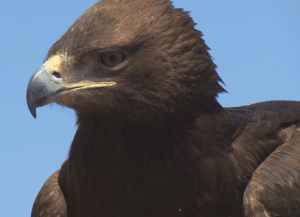
by Pigeon Patrol | Apr 18, 2016 | Animal Deterrent Products, Bird Netting, UltraSonic Bird Control
 The University of Canterbury (UC) hopes a native falcon will eradicate hundreds of pigeons plaguing the campus.
The University of Canterbury (UC) hopes a native falcon will eradicate hundreds of pigeons plaguing the campus.
In its latest move to reduce the pigeon population, a karearea bird – as pictured on the $20 banknote – has been trained to make territorial flights to scare off flocks of pest birds from buildings and the campus.
Marlborough Falcon Trust handlers Vikki Smith and Rob Lawry have been free-flying the specially bred one-year-old karearea, called Tappe, in what is believed to be the first programme of its kind in New Zealand.
Marlborough Falcon Trust handler Rob Lawry hopes Tappe, a karearea bird, will stop University of Canterbury’s pigeon problem.
DEAN KOZANIC
Marlborough Falcon Trust handler Rob Lawry hopes Tappe, a karearea bird, will stop University of Canterbury’s pigeon problem.
UC engineering services manager Rob Oudshoorn said the pigeon problem had “escalated dramatically” since the quakes when central city roosting spots were pulled down.
Combined with an abundance of food from the ruined city and the campus’ proximity to town, the university’s pigeon population has ballooned into the hundreds and affects more than 20 buildings.
The falcon is the university’s latest innovation to solve the problem after unsuccessful attempts using electric fencing, spikes and controlled culling with slug guns, Oudshoorn said.
Excrement is the biggest problem the birds bring as it piles around doors, windows, footpaths, and roofs, he said. Where pigeon numbers are high, buildings deteriorate more rapidly and the spread of disease increases.
“And depending on the scale of it, it can become quite an issue. In the extreme if it’s left there for a long period of time, those piles of excrement bring in maggots, and the excrement itself is pretty toxic too really.”
With a population of around 6000, karearea are rare. They are a natural predator to pigeons, which use avoidance and escape as a natural defence.
The natural bird control technique is used around the world, including Dubai, airports and London’s Trafalgar Square.
Lawry said the birds are trained to fly to a lure held by an instructor, rather than to capture birds.
“As the falcon comes rocketing towards the lure I pass it behind me in the direction I want it to travel, and so he goes up high in that direction. When he goes high the pigeons will go ‘I’m out of here because there’s a falcon here’. But at that point if there’s a really slow pigeon the falcon might get it.”
About Pigeon Patrol:
Pigeon Patrol Products & Services is the leading manufacturer and distributor of bird deterrent (control) products in Canada. Pigeon Patrol products have solved pest bird problems in industrial, commercial, and residential settings since 2000, by using safe and humane bird deterrents with only bird and animal friendly solutions. At Pigeon Patrol, we manufacture and offer a variety of bird deterrents, ranging from Ultra-flex Bird Spikes with UV protection, Bird Netting, 4-S Gel and the best Ultrasonic and audible sound devices on the market today.
Voted Best Canadian wholesaler for Bird Deterrent products four years in a row.
Contact Info: 1- 877– 4– NO-BIRD (www.pigeonpatrol.ca)

 SINGAPORE – Every day for at least a year, pigeons that congregate outside Masjid Haji Muhammad Salleh mosque will get an extra ingredient in their breakfast.
SINGAPORE – Every day for at least a year, pigeons that congregate outside Masjid Haji Muhammad Salleh mosque will get an extra ingredient in their breakfast.

 Culling pigeons is becoming an attractive solution for local authorities but is ineffective in dealing with the root of the problem, according to an ornithologist.
Culling pigeons is becoming an attractive solution for local authorities but is ineffective in dealing with the root of the problem, according to an ornithologist.
 I AM appalled at the latest invasion of pigeons in Widnes town centre.
I AM appalled at the latest invasion of pigeons in Widnes town centre.
 THE new experiment to control the pigeon population in Singapore should be conducted with care, to make sure that only the targeted species – pigeons – are affected, and not other bird species and stray animals.
THE new experiment to control the pigeon population in Singapore should be conducted with care, to make sure that only the targeted species – pigeons – are affected, and not other bird species and stray animals.
 The University of Canterbury (UC) hopes a native falcon will eradicate hundreds of pigeons plaguing the campus.
The University of Canterbury (UC) hopes a native falcon will eradicate hundreds of pigeons plaguing the campus.